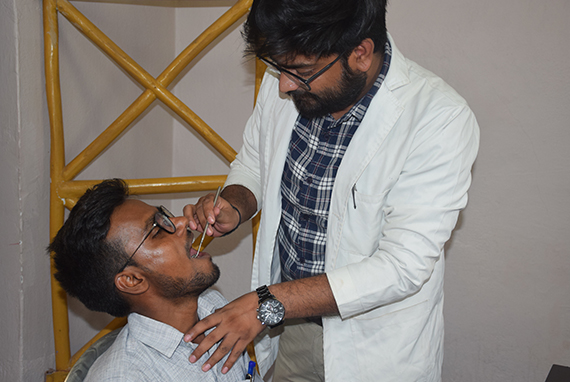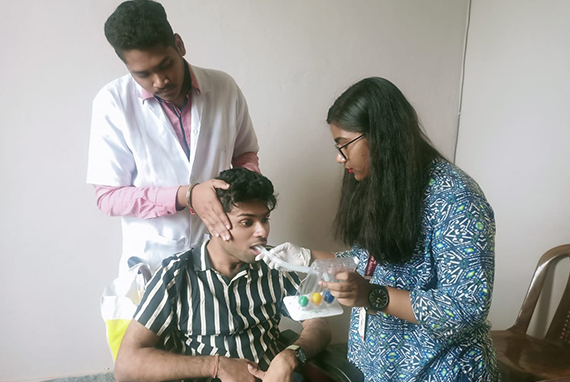A person with a swallowing disorder is one who has any type of difficulty performing the usual swallow. Dysphagia is another name for a swallowing issue. We all occasionally face difficulties swallowing in our daily lives. The issues may manifest as difficulty chewing meat, gagging while eating, or having to swallow food forcefully. Occasionally, the issues may take the shape of an unpleasant drink that makes us feel uneasy, which in turn causes us to cough and choke. A person with a swallowing difficulty is one who consistently has problems like these.
The following are examples of general signs of a swallowing issue:
Coughing that is mild or continuous before, during, or after a meal or beverage.
Food or liquid dripping from your mouth.
Having respiratory problems after eating.
Chewing and swallowing take more time or effort.
Voice gurgles during eating or drinking, or right after.
Having food particles trapped in your mouth.
Loss of appetite and weight.
You could also experience:
Poor nutrition and dehydration as a result.
Ingestion of food or fluids into the airway.
Pneumonia or other illnesses of the lungs.

Damage to your nerves or brain brought on by:
Stroke and Spinal cord injury.
Multiple sclerosis, Brain injury and Alzheimer's disease.
Lou Gehrig's disease, also known as amyotrophic lateral sclerosis.
Muscular dystrophy, Cerebral palsy and Parkinson's disease.
Damage to your nerves or brain brought on by:
Oesophageal, throat, or mouth cancer.
Neck or mouth surgery.
Neck or head trauma.
Badly fitting dentures, missing teeth, or decayed teeth.
There are several subjective and objective tests that may be performed to identify the issue:
Four finger tests can be done to determine how well the swallowing and speaking muscles are working.
The pharyngeal phase of swallowing may be seen in action using fiber-optic endoscopic assessment of swallowing (FEES).
A barium swallow test can be conducted to see how each swallowing phase works.
There are several different tests that may be used to assess both children's and adults' swallowing issues.
Just as the intervention tactics are determined by the accurate and exact diagnosis of the condition, a successful rehabilitation process depends on a professional diagnosis made by someone with the necessary training and expertise.
To determine the problem's location, both subjective and objective tests can be used:
Possess the necessary contemporary tools for a thorough intervention procedure.
Enlist the aid of highly skilled and knowledgeable specialists to assist you in your recuperation.
Provide different facilities for adult and juvenile rehabilitation.
Provide one-on-one therapy attention to patients and carers, as the type of treatment they require will depend on the issues they are facing.
Give full help in resolving their swallowing problems, not simply in getting them back to normal.
Implement follow-up initiatives to track their development following termination.
Assist the patients with their feeding challenges and offer guidance on feeding.
Exercise for swallowing muscles.
Diet modification.
Swallowing maneuver.
Positioning therapy.
Oro-motor exercises.
Margdarsi's method involves regularly assigning trained professionals, such as cardiopulmonary physiotherapists, neuro physiotherapists, and speech-language pathologists, to deliver multimodal therapy with careful attention.
Margdarsi offers the greatest procedures and cutting-edge tools for intervention for swallowing problems.
To prevent any form of emergency situations, we take the greatest precautions and preventative measures during the therapy procedure.

The prognosis of dysphasia will depend upon:
The swallowing difficulty is caused by neurological concerns, structural abnormalities, or the side effects of radiation, which is the aetiology (reason) of the condition.
The site of the lesion (affected side).
The problem's onset (when did it actually begin?) and its persistence.
Age of the patient./p>
Motivation and cooperation of the patient.